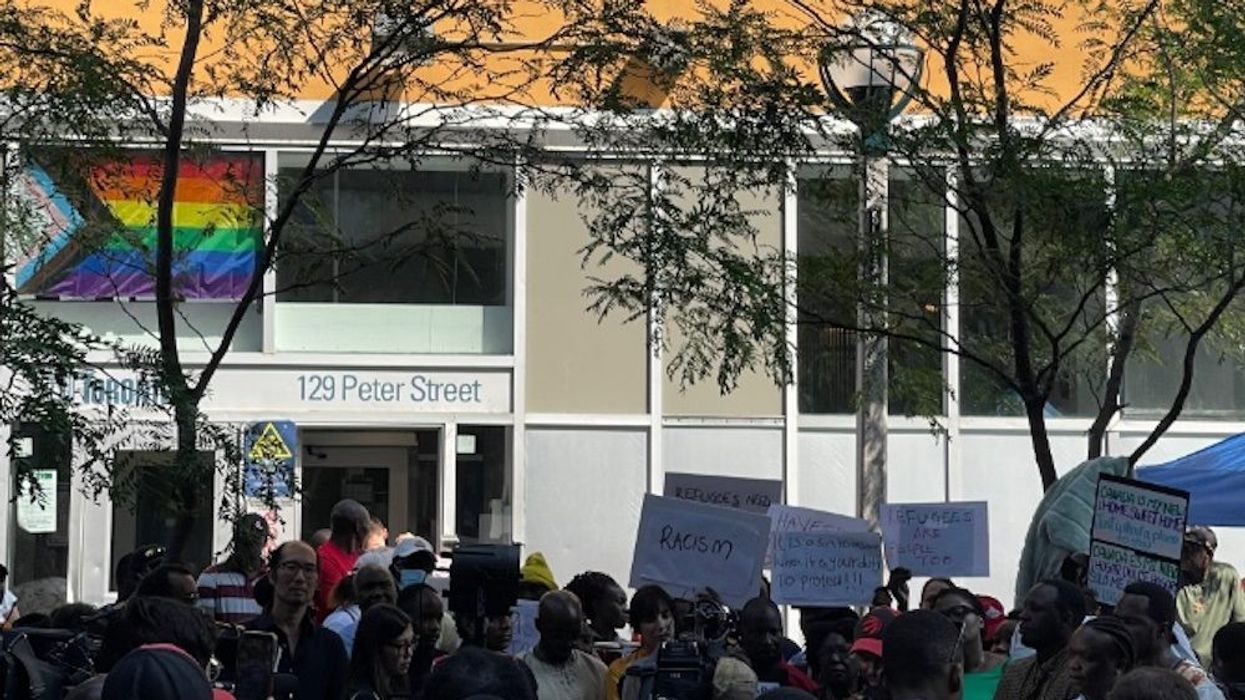The Government of Canada announced on Tuesday a $97M injection into the Interim Housing Assistance Program (IHAP) to provide shelter to asylum seekers in Toronto.
"Today, we have committed additional funds to ensure cities like Toronto have the capacity to keep a roof over the head of asylum seekers fleeing violence, war and persecution," said Minister of Immigration, Refugees and Citizenship Sean Fraser.
The assistance comes weeks after reports first began of refugees struggling to find housing in the city, with many camping outside Toronto's homeless service centre at Richmond and Peter Streets. A number of City officials said that the federal government, although responsible for refugees and asylum seekers, had not provided Toronto with adequate funding to handle an influx in demand.
The $97M set aside for Toronto is intended to address those issues, and comes as part of a larger $212M investment into IHAP, which provides funding to provinces and municipalities on a cost-sharing basis to cover interim housing for asylum claimants. It comes in addition to the $700M already invested into the program, $215M of which was for Toronto.
"Today’s funding announcement builds on our record of partnering with municipalities, including Toronto, to ensure that those seeking refuge and safety in Canada receive the support they deserve," said Deputy Prime Minister and Minister of Finance Chrystia Freeland.
In June, the City of Toronto began referring any asylum seekers looking for shelter in Toronto's non-refugee-specific shelters to the federal government. Soon, dozens of refugees were left to camp out on the sidewalk in front of the homeless referral centre, some in tents and others with only a sleeping bag, leaving them and their belongings exposed. Toronto's new mayor, Olivia Chow, called the situation a "crisis" during her first press conference at the mayoral helm.
On Friday, officials from the federal, Ontario, and municipal government came together for an emergency meeting to work on a solution. The new IHAP funding appears to be the result of that meeting.
The federal government's announcement also noted that Immigration, Refugees and Citizenship Canada (IRCC) "has been working with the most impacted provinces and municipalities to increase the amount of temporary housing." In early July, IRCC had over 3,800 hotel rooms in six provinces to provide temporary housing.
Lead photo: Gary Pieters





















